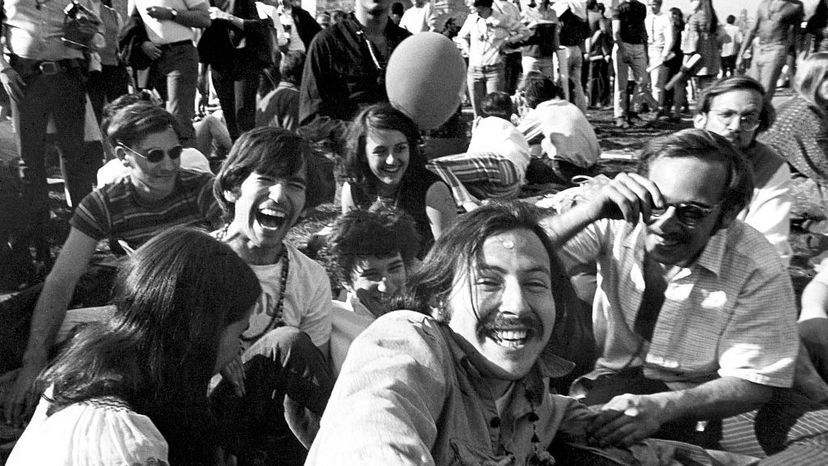LSD Trips: Something Happened to Me Yesterday

It's often stated that LSD causes hallucinations, but that's not quite accurate. When a person has a hallucination, he or she believes that everything that he or she sees and feels is real. LSD changes the way people perceive the world around them, as well as what they think and feel, but people on LSD don't see things that aren't there. They see what's already there in a different way, and (most of the time) they're aware that their altered perceptions are caused by the drug.
After taking LSD, the effects -- known as a "trip" -- usually start within an hour and can last up to 12 hours, with a peak about halfway through the experience. LSD affects everyone a little differently. Some people have dilated pupils, increased blood pressure, and elevated body temperature. Others on LSD may also feel dizzy, sweat, have blurred vision and feel tingling in their hands and feet. They may feel drowsy but not sleepy.
Advertisement
LSD's primary effects are visual. Colors seem stronger and lights seem brighter. Objects that are stable might appear to move or have a halo of light around them. Sometimes objects have trails of light coming from them or appear smaller or larger than they really are. LSD users often see patterns, shapes, colors and textures. Sometimes it seems that time is running backward or moving very quickly or slowly. On very rare occasions (although it's sometimes portrayed as common), tripping can cause synesthesia -- a confusion of sensations between different types of stimuli. Some people have described this as "seeing" colors when exposed to specific sounds.
Feelings of happiness and euphoria are common, and everyday experiences may seem more beautiful, interesting and magical. People on LSD often become very emotional, more prone to tears or laughter. Large doses of may make them feel especially contemplative. They feel that their mind has burst through its normal boundaries, and they often claim to have had experiences that are spiritual or religious, with a new understanding of how their world and surroundings (or, you know, their lava lamps) work.
People tripping on LSD may have very questionable reasoning skills, becoming impulsive or irrational. This why some LSD users trip in groups, especially with others who have experience, and in calm places like home or in a park.
As the drug kicks in, users may spend a lot of time pondering something that appears incredibly unimportant, say, a leaf on the ground or a stain on the sofa. They aren't always easy to understand, but when they do talk, they speak quickly and jump from subject to subject.
If all goes according to plan, users will experience a good, or positive, trip. However, most people who have used LSD know that there's always a possibility of having a "bad trip."
It's not really clear what causes a bad trip, especially since each trip can be very different depending on the person. LSD users sometimes say that it's due to the "set and setting." This means that if you are already in a bad mood, or you trip in a highly structured environment that requires you to think logically (such as school), you could have a bad trip. This may include losing sight of the illusory aspect of tripping, which results in fear and paranoia, and a feeling of dying of being in hell. The loss of control is frightening, and it seems like the trip will never end [source: Davis].
Sometimes when someone has a bad trip, they wind up in the emergency room of a hospital, but there usually isn't much that doctors do other than give the person a quiet space and reassurance. They may administer an anti-anxiety medication or a mild tranquilizer to ease the patient's panic. As the trip ends, the patient may feel dizzy or nauseous, but people usually recover with no lasting side effects.
For some, one bad trip is enough to swear off LSD forever. Even if LSD users don't have a bad trip, heavy use of LSD can still cause serious mental and physical health issues.